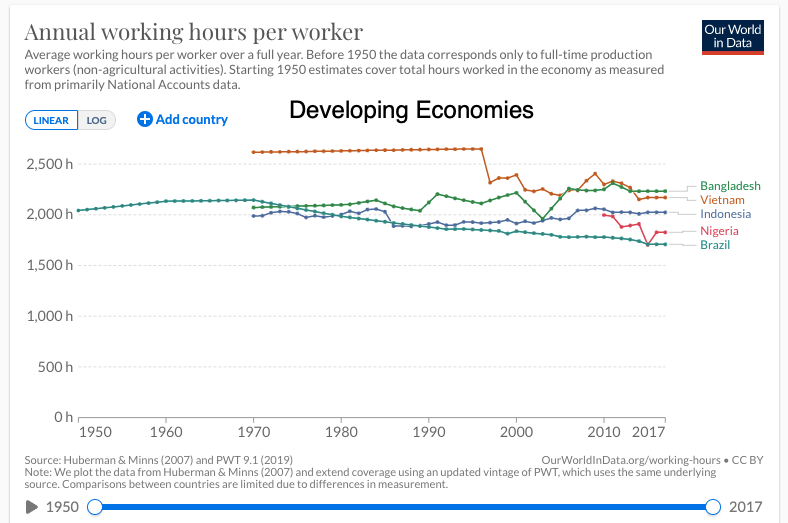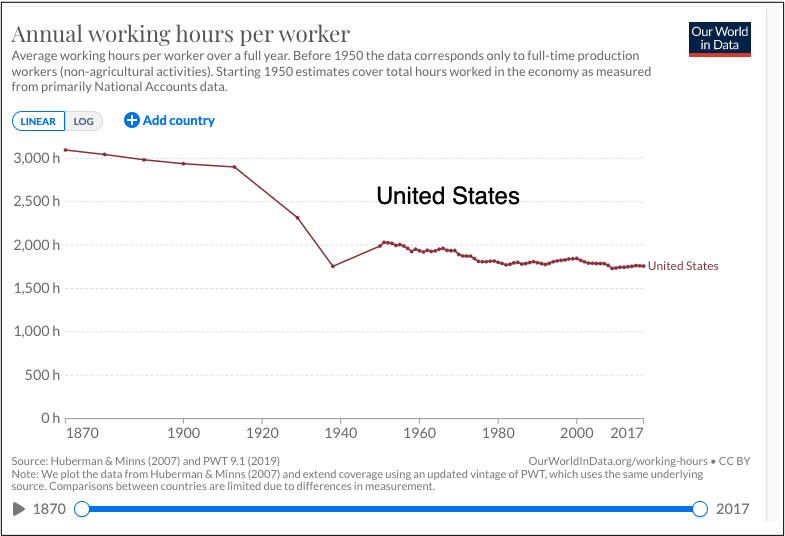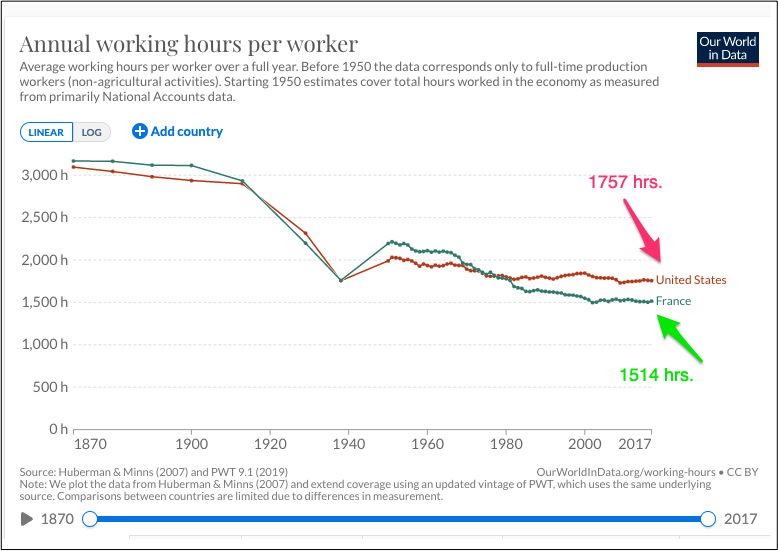
Who Gets The Best Return From Social Security and Medicare?
June 27, 2022
Good and Bad Economic News
June 29, 2022NPR called it the Great French Lunch Break.
Because of the French labor code, workers are prohibited from doing work during lunchtime. As a mandate and a social norm. midday, you leave the office to enjoy an hour’s repast (or more) with your work friends.
Used to an entirely different workday in the U.S., an American at the University of Strasbourg describes having to sneak a moment or two at her desk during lunchtime. As you might expect, lunch gives us a clue about who works more.
Work Hours
Geography
Yes, we work longer hours in the U.S.:
And, we definitely see a divide between the developing and developed economies. At the top of my list of middle income countries, we have the average annual work hours in Bangladesh at 2232:

History
In countries with developed economies, when we work is way down. Looking back to 1870, we see a decline that encompasses the number of work days and the hours worked during each day. It was not unusual to see a 3,000 hour annual rate–the total for a 60 to 70 hour week. For the U.S. the decline was from 3,096 in 1870 to 1,757 in 2017:

Our Bottom Line: Tradeoffs
In Germany, your great grandfather might have worked 3,284 hours in 1870 while your average in 2017 was 1,354. The result is a lot more time for leisure. As economists, that takes us straight to the opportunity cost of the work leisure tradeoff. Defined as the most desirable alternative that we sacrifice, the opportunity cost of a decision has benefits that we forgo. With more leisure, we might sacrifice the money that could be earned but more work means we lose the time with the family and friends or that extra time at the gym.
In addition, we sacrifice the Great French Lunch Break.
My sources and more: Thanks to a Rough Translation podcast for alerting me to the Great French lunch break. From there, this history and the Our World in Data were perfect complements. And finally, this econlife post displays that a woman’s tradeoff from work is not necessarily leisure.
![econlifelogotrademarkedwebsitelogo[1]](/wp-content/uploads/2024/05/econlifelogotrademarkedwebsitelogo1.png#100878)





